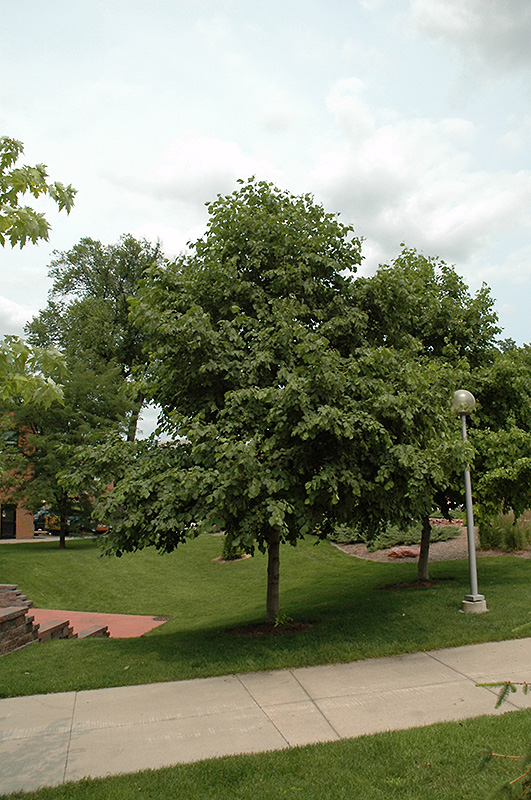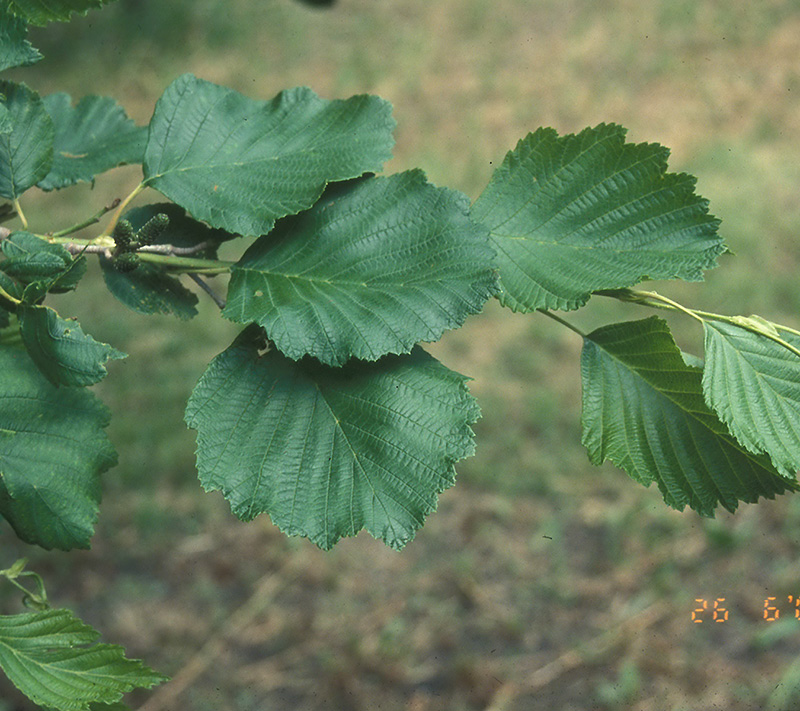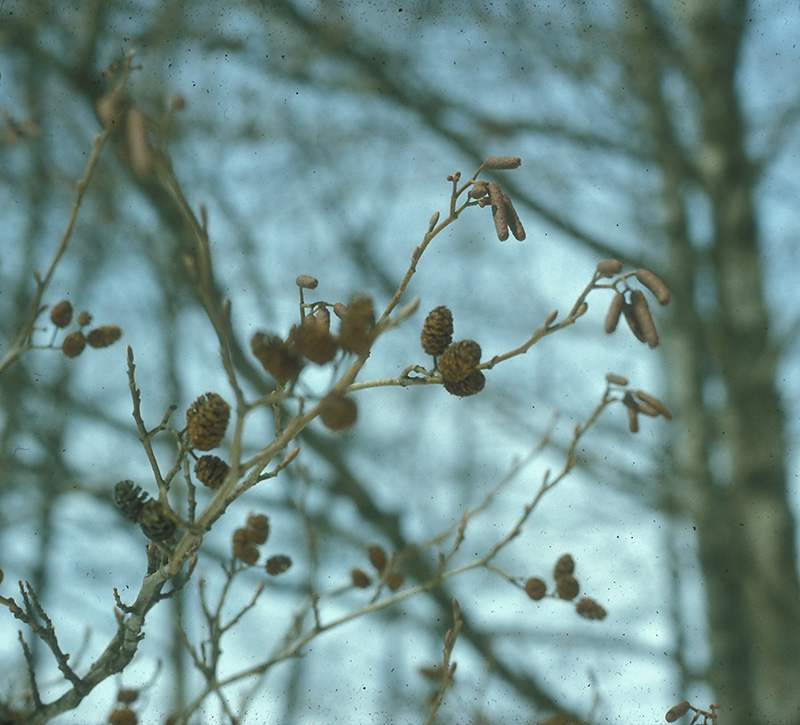Prairie Horizon Manchurian Alder - New For 2025! Alnus hirsuta 'Harbin' Height: 40 feet Spread: 30 feet
Sunlight:
Hardiness Zone: 3 Other Names: Siberian Alder Description: A handsome tree with strong upright growth, dark green foliage and smooth gray beech-like bark, purple catkins and clusters of brown cone-like strobiles add interest during winter; one of the most drought tolerant alders on the market Ornamental Features Prairie Horizon Manchurian Alder has purple catkins hanging below the branches in early spring before the leaves. It has dark green deciduous foliage. The glossy oval leaves turn yellow in fall. The smooth gray bark adds an interesting dimension to the landscape. Landscape Attributes Prairie Horizon Manchurian Alder is a deciduous tree with a strong central leader and an upright spreading habit of growth. Its average texture blends into the landscape, but can be balanced by one or two finer or coarser trees or shrubs for an effective composition. This is a relatively low maintenance tree, and is best pruned in late winter once the threat of extreme cold has passed. It has no significant negative characteristics. Prairie Horizon Manchurian Alder is recommended for the following landscape applications; Planting & Growing Prairie Horizon Manchurian Alder will grow to be about 40 feet tall at maturity, with a spread of 30 feet. It has a low canopy with a typical clearance of 5 feet from the ground, and should not be planted underneath power lines. It grows at a fast rate, and under ideal conditions can be expected to live for 80 years or more. This tree performs well in both full sun and full shade. It is an amazingly adaptable plant, tolerating both dry conditions and even some standing water. It is not particular as to soil type or pH. It is somewhat tolerant of urban pollution. This is a selected variety of a species not originally from North America.
![]()
![]()
![]()
![]()
![]()
![]()
![]()
![]()
![]()
![]()
![]()
![]()
Characteristics
Applications
Features & Attributes



